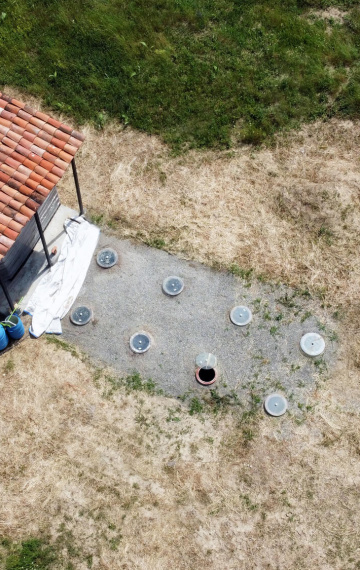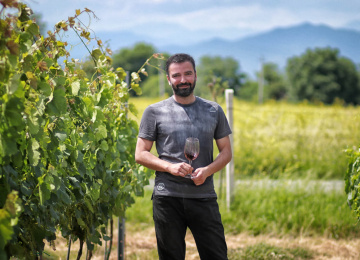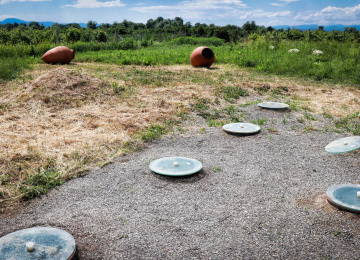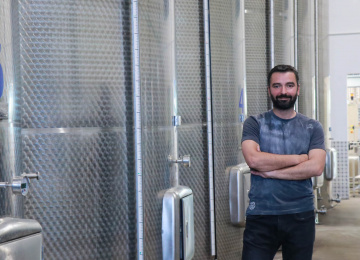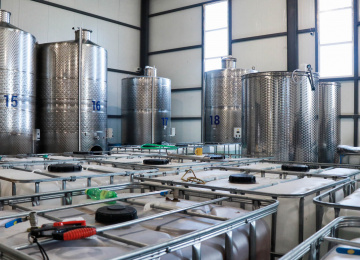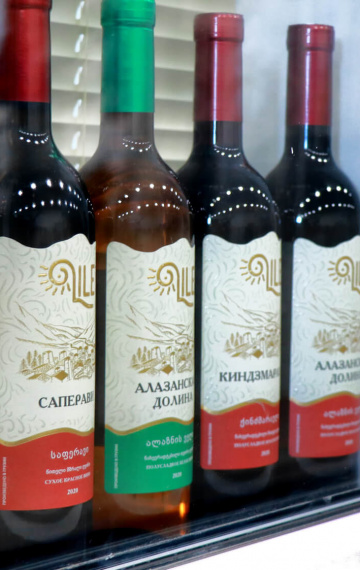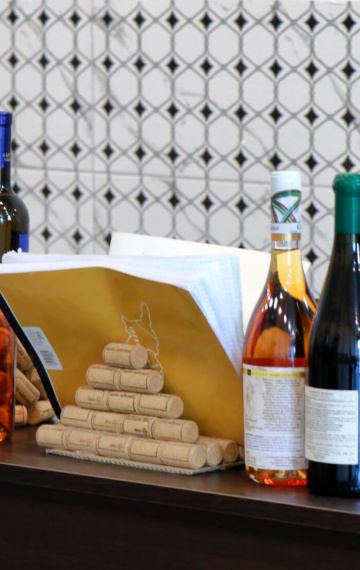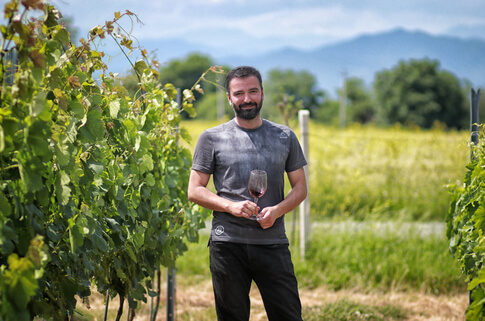
Georgia has a long history of winemaking. The Kvevri (or Qvevri) – imagine a very large amphora without handles – uncovered by archeological diggings in the fertile valleys and along the slopes of the Southern Caucasus indicate that the region’s winemaking activities date back at least eight thousand years. To this day, they are used for fermenting, storing, and ageing traditional Georgian wine, and can be left above ground or buried. Kvevri are made of carefully selected clay because its mineral composition will in turn affect the mineral content of the wine. It’s an age-old tradition in a very specific region of the country.
“But that’s another story,” says Zurab Tsiklauri, Director of Kartuli Marani winery, pointing to a Kvevri lying on the ground in the village of Kurdghelauri, in the famed Telavi grape region.
“What I found surprising was that with all this winemaking tradition, there was little awareness of organic growing methods.” That was in 2017, when Kartuli Marani embarked on the mission to grow high-quality, organic wines with love and respect for the land. “We produce 15 varieties of wine and export our reds, whites, and rosés to five countries, so we know that we are on the right track,” adds Tsiklauri.
“Growing wine using organic methods also means making wine using processes that are as sustainable as possible,” says Tsiklauri. “It’s a matter of being consistent and living up to our promise to our wine-loving customers.” Aligning the winemaking side to a higher level of sustainability also means significant investments, however.
“When Basis Bank told us about their partnership with the Green for Growth Fund, the timing could not have been better,” remembers Tsiklauri. Thanks to GGF’s Green Advisory program under the EU4Business Initiative, which provides advice by experts on how to optimize and green operations, Kartuli Marani was able to produce the architectural and construction designs, including cost estimates, for their green wine cellar. Concrete steps were provided to make the winemaking facilities and processes greener, for instance by installing solar panels.
Construction of the cellar has been completed by the end of 2021 with export of biodynamic wines to start in 2022. “We save costs plus we ensure the longevity of our wine processing operations,” says Tsiklauri. “There is no denying that making our operations more sustainable makes our organic wine products more attractive and competitive. And that’s also great for Georgian wines!”

